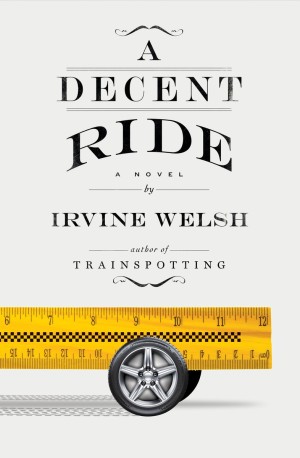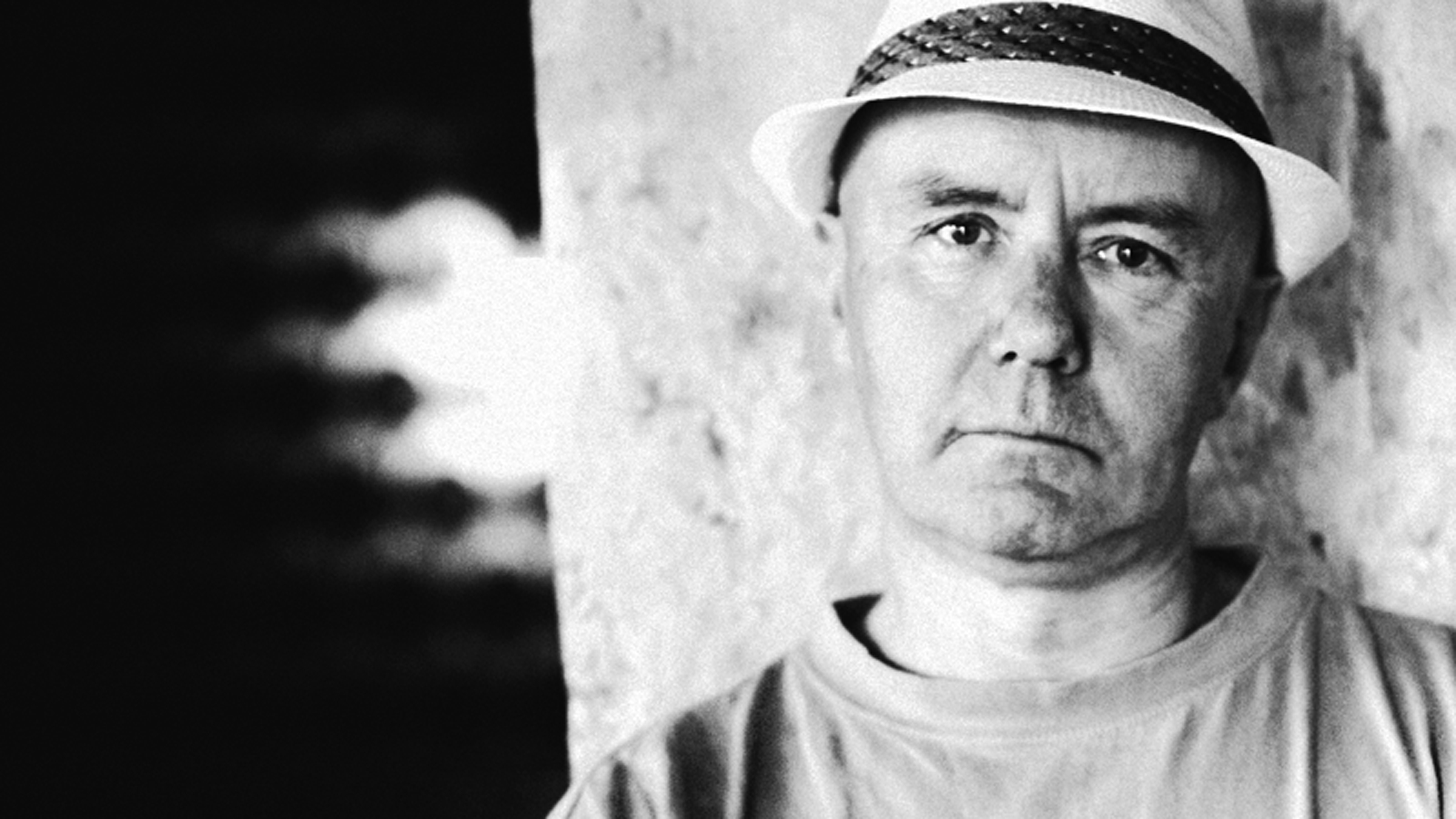You must be prepared when cracking the spine of an Irvine Welsh novel—there’s going to be some contemptible violence and drug use, a lot of dialogue that at first glance seems indecipherable, and loads of sex. And while some other characters within Welsh’s world do a solid job of securing tail on the regular (Sick Boy and Carl Ewart both get honorable mentions), no one’s better at getting their hole in than Juice Terry Lawson. First introduced in 2001’s Glue, Juice Terry and his drunken sexcapades were the light-hearted foil to his moody friends’ troubles; you never had to take him seriously and he was good for a couple of pages of laughs and a few chapters full of cringe-worthy hooliganism. Now, in A Decent Ride, Welsh has pushed Lawson center stage, exposing the not-so-fun side of being an aging hoodlum-turned-cabbie in damp, dark Edinburgh. The results are mixed at best.
 The basic premise of A Decent Ride—follow Juice Terry around as he picks up friends, lovers, and strangers in his cab—is a solid concept with plenty of opportunity for fanciful adventures and sexy results. But in reality, the first half of the book gets bogged down on a couple of his clients including a stuffy American businessman who idolizes Donald Trump (now an even more chilling reference) and an artsy girl he shags who’s simply known as Suicide Sal. Both of these individuals—and make no mistake, they are both important to moving A Decent Ride along—are merely caricatures that flow in and out of the back of Terry’s taxi, which is a damn shame considering how detailed and complex a character Terry himself should be. It’s true that we’ve had the ability to spend time with the curly-haired lothario in two of Welsh’s novels before, but that doesn’t excuse the lack of effort spent developing the present-day world around him here. Without Glue’s Gally, Ewart, and Billy Birrell around to pick up the emotional slack, Lawson’s simple storyline seems pointless, much less compelling enough to keep reading about. Have sex, drive cabs, sell/do drugs, film porn, repeat—“the spice of life,” as Juice Terry himself would say.
The basic premise of A Decent Ride—follow Juice Terry around as he picks up friends, lovers, and strangers in his cab—is a solid concept with plenty of opportunity for fanciful adventures and sexy results. But in reality, the first half of the book gets bogged down on a couple of his clients including a stuffy American businessman who idolizes Donald Trump (now an even more chilling reference) and an artsy girl he shags who’s simply known as Suicide Sal. Both of these individuals—and make no mistake, they are both important to moving A Decent Ride along—are merely caricatures that flow in and out of the back of Terry’s taxi, which is a damn shame considering how detailed and complex a character Terry himself should be. It’s true that we’ve had the ability to spend time with the curly-haired lothario in two of Welsh’s novels before, but that doesn’t excuse the lack of effort spent developing the present-day world around him here. Without Glue’s Gally, Ewart, and Billy Birrell around to pick up the emotional slack, Lawson’s simple storyline seems pointless, much less compelling enough to keep reading about. Have sex, drive cabs, sell/do drugs, film porn, repeat—“the spice of life,” as Juice Terry himself would say.
Just as the patience of the reader is wearing thin, though, Welsh cuts the legs out from under Lawson by making him unable to do the one thing he’s truly good at—having sex. At first, there’s a lot of whining (“Ye mean ah cannae huv a fuckin ride? Ever?! In ma puff?!”) about his very serious and incurable heart condition, but eventually Ride’s de facto hero comes close to accepting that he has to change his life in order to actually have one. He connects with his estranged children who are now grown, realizing that he has just continued the cycle of emotional abuse that his own absentee father had put upon him, and he starts to treat his body better; he eats better food, he starts to exercise, and he reads classic literature.
It’s true that we’ve had the ability to spend time with the curly-haired lothario in two of Welsh’s novels before, but that doesn’t excuse the lack of effort spent developing the present-day world around him here.
Yes, his favorite book is Moby-Dick and he loves golf because it’s all about putting things in holes, but it really is a start—especially for a guy that’s been partying nonstop for thirty years—and that sincerity shines through. His interactions with his kids are awkward as he tries to ease the pain of their disjointed upbringing with money and a couple of pints, but his efforts are earnest and do not go unnoticed by his family. Even when Lawson reconnects with his slightly slow half-brother Jonty McKay, he’s respectful of his condition and treats Jonty as an equal. It’s enough to inspire Jonty to give Lawson a new nickname: “Kind Terry.”
But what life is really worth living if you can’t have sex, right? After about a hundred pages of good will and nuanced emotional moments with Lawson, Welsh squanders it all with a rushed and pointless deus ex machina that stops any of Terry’s maturation right in its tracks. The conclusion is an unnecessary cop out that allows Welsh to continue to write Lawson as a sex-crazed fool, as opposed to treating him as the fleshed-out and commendable character that he had become throughout A Decent Ride.
In the end, then, Welsh’s tenth novel is like bad sex—even though it has potential, A Decent Ride is overlabored, full of complicated plot twists, and unsatisfying. FL









